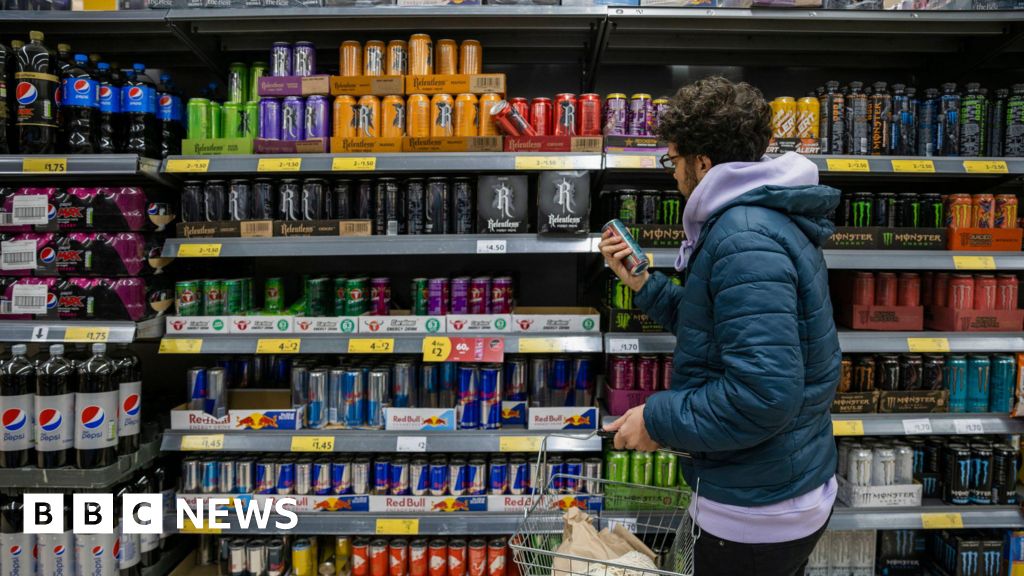Energy drinks to be banned for under 16s
- BBC News
The government is planning a new law in England to stop anyone under the age of 16 buying energy drinks such as Red Bull, Monster and Prime from shops, restaurants, cafes, vending machines and online.
Up to a third of UK children are thought to consume these types of drinks every week, despite most supermarkets having already introduced a voluntary ban.
Some popular drinks contain more caffeine than two cups of coffee.
Health and Social Care Secretary Wes Streeting said he was acting on the concerns of parents and teachers and tackling the issue "head on", to protect young peoples health.
Lower-caffeine soft drinks, such Diet Coke, are not affected, and neither are tea and coffee.
A consultation will now run for 12 weeks to gather evidence from health and education experts as well as the public and retailers and manufacturers.
TV chef Jamie Oliver has repeatedly warned of the dangers and disruption energy drinks can cause, with kids coming into school "bouncing off the walls" having had energy drinks for breakfast.
"We are talking about three, four shots of espresso in one of these things. Loads of sugar. So an absolute nightmare," he said in a video posted on X last year.
Excessive consumption is linked to headaches and sleep problems.
Too much caffeine can cause a rapid heart rate, abnormal heart rhythms and seizures too.
Although rare, there have been some deaths linked to excess caffeine.
Under current labelling rules, any drink, other than tea or coffee, with over 150mg of caffeine per litre requires a warning label saying: "High caffeine content. Not recommended for children or pregnant or breast-feeding women."
Young people have smaller bodies and their brains are still developing, which can make them more sensitive to caffeine, say experts.
For most adults, up to 400mg of caffeine a day, or about four cups of instant coffee or five cups of tea, is safe.
"By preventing shops from selling these drinks to kids, were helping build the foundations for healthier and happier generations to come," said Mr Streeting.
Prof Steve Turner, president of the Royal College of Paediatrics and Child Health, said a ban was the "next logical step" in making childrens diets more healthy.
And Prof Amelia Lake from Teesside University, who has studied the drinks impact on young peoples lives, said they had "no place" in the diets of children.
"Our research has shown the significant mental and physical health consequences of children drinking energy drinks.
"We know these drinks are part of youth culture and associated with sports, gaming, music and more, but there is a lack of clear signalling about their health consequences."
But Gavin Partington from the British Soft Drinks Association said manufacturers had already led the way with self regulation.
"As with all government policy, its essential that any forthcoming regulation is based on a rigorous assessment of the evidence thats available," he added.
Northern Ireland, Scotland and Wales are also considering a ban.